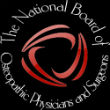Here are some of our most frequently asked questions:
Will our hospitals and payers accept NBOPAS certification?
This is a grass roots initiative. We are working hard to gain acceptance by hospitals and payers. We are also relying on physicians like you to spread the word with your colleagues and your hospital medical executive committee. The website has sample letters you can personalize and use to spread the word. Here are a few relevant links:
Why NBOPAS?
Sample Letter to Admin
Sample Letter to Colleagues
What specialties are offered?
We are currently accepting applications for all ABMS and AOA specialties. Check out our full list of specialties by clicking here.
For each specialty application, does the applicant need all 50 hours in every specialty?
No, 50 hours over two years in any of the specialties applied for is sufficient. However, if any of your specialties have lapsed (ie you were once certified and had to re-certify but did not re-certify), you must have 100 hours of CME in that specialty.
If I am currently certified but I am not due for re-certification for several years, should I certify with NBOPAS?
While you could wait, the more physicians NBOPAS certifies, the stronger and more influential it will be. This is a grass roots organization. We need your support.
Do any specialties require certification in another specialty? For example, to be certified in interventional cardiology, do I also need to be certified in cardiology?
No, but for most physicians this will not be an issue. If you have been previously certified in interventional cardiology then you were previously certified in cardiology (and internal medicine). Therefore, you can be certified in all three by completing the application and submitting the required 50 hours of CME. The CME can relate to any of the specialties for which you are applying. In the example, the physician will likely have all of his/her CME in interventional cardiology but this can be applied to internal medicine and cardiology.
If I am grandfathered in a specialty (i.e. my ABMS member certification never expires) do I need to do 50 or 100 hours of CME?
If you are grandfathered your certification has not, by definition, expired and you must complete at least 50 hours (not 100 hours) of CME in the past 24 months.
What if I do not have a license to practice medicine in the U.S.?
If you hold a license outside of the U.S. you must provide evidence of an unrestricted license from a valid non-U.S. licensing body.
Isn’t MOC required by the ACA?
No. Earlier, there was a provision for physician incentive payments tied to quality reporting in the ACA (and MOC was listed as one, but not the only option, of fulfilling this requirement) but this had a sunset in 2014. It is not an issue.
Won’t the FSMB’s proposed Interstate Compact define a physician as certified by ABMS or alternatively AOA? Won’t this ultimately require MOC for licensure in states that join it?
This is posted as a “Myth” on the Federation of State Medical Boards website. But some believe it will ultimately prove true. If so, our best response is to include NBOPAS certification on the list of certifications acceptable to the Federation. This requires lobbying and large numbers of NBOPAS certified physicians. Below is an excerpt from the Federation’s website in a section titled “Six Myths about the Interstate Medical Licensure Compact”:
MYTH: It is alleged that physicians participating in the Compact would be required to participate in Maintenance of Certification (MOC), or that MOC is an eligibility requirement for the Compact.
FACT: The Compact makes absolutely no reference to Maintenance of Certification (MOC) or its osteopathic counterpart, Osteopathic Continuous Certification (OCC). The Compact does not require a physician to participate in MOC, nor does it require or even make mention of the need to participate in MOC as a licensure renewal requirement in any state. Once a physician is issued a license via the Compact from a state, he or she must adhere (as now) to the renewal and continuing medical education requirements of that state. No state requires MOC as a condition for licensure renewal, and therefore, this will not be required for physicians participating in the Compact.
See the complete list of myths here: https://www.fsmb.org/Media/Default/PDF/Licensure/InterstateCompactMyths.pdf
Where does the application fee go?
This is a new organization. Our major expenses relate to website design/maintenance, support staff salaries, legal, computers, office space and supplies. In the near future we will need funds to spread the word and lobby hospitals, payers and politicians. Physician management has not taken any salary. We are working very hard to contain costs and keep application fees low. In future years we will adjust application fees (hopefully down) as needed. We have not yet asked for donations because at this time we would rather see funds used for applications. We will invite donations in the future. Getting NBOPAS to this stage has required many hundreds of detailed tasks.
What is preventing NBOPAS from becoming another ABMS in the future, since ABMS also started with very similar goals of NBOPAS?
Any organization can change over time. It is up to its members to track their organization, change it or leave it if it no longer serves them. We started NBOPAS because we are unhappy with ABMS. If NBOPAS is no longer a relevant organization then physicians will leave it, start and join other organizations.
Does NBOPAS accept AOA/AMA Category 2 credit?
Only AOA Category 1A & 2A credits, and AMA PRA Category 1 credits will be accepted. Note, AMA Category 2 credit is not generally accepted by state licensing boards.
What is the turn-around time for certification?
Six weeks or less.
 National Board of Osteopathic Physicians and Surgeons
National Board of Osteopathic Physicians and Surgeons